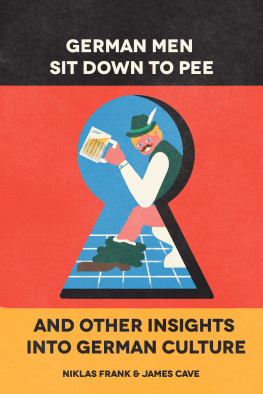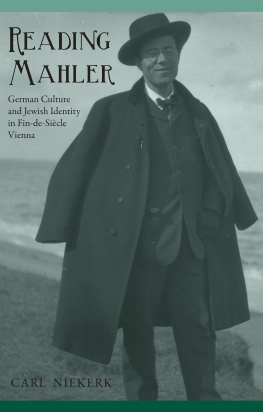Lepenies - The Seduction of Culture in German History
Here you can read online Lepenies - The Seduction of Culture in German History full text of the book (entire story) in english for free. Download pdf and epub, get meaning, cover and reviews about this ebook. City: Princeton, year: 2014;2009, publisher: Princeton University Press, genre: Politics. Description of the work, (preface) as well as reviews are available. Best literature library LitArk.com created for fans of good reading and offers a wide selection of genres:
Romance novel
Science fiction
Adventure
Detective
Science
History
Home and family
Prose
Art
Politics
Computer
Non-fiction
Religion
Business
Children
Humor
Choose a favorite category and find really read worthwhile books. Enjoy immersion in the world of imagination, feel the emotions of the characters or learn something new for yourself, make an fascinating discovery.
The Seduction of Culture in German History: summary, description and annotation
We offer to read an annotation, description, summary or preface (depends on what the author of the book "The Seduction of Culture in German History" wrote himself). If you haven't found the necessary information about the book — write in the comments, we will try to find it.
Lepenies: author's other books
Who wrote The Seduction of Culture in German History? Find out the surname, the name of the author of the book and a list of all author's works by series.
The Seduction of Culture in German History — read online for free the complete book (whole text) full work
Below is the text of the book, divided by pages. System saving the place of the last page read, allows you to conveniently read the book "The Seduction of Culture in German History" online for free, without having to search again every time where you left off. Put a bookmark, and you can go to the page where you finished reading at any time.
Font size:
Interval:
Bookmark:


Princeton University Press  Princeton
Princeton Oxford
Oxford
2006 by Princeton University Press
Published by Princeton University Press, 41 William Street,
Princeton, New Jersey 08540vIn the United Kingdom: Princeton University Press, 3 Market Place,
Woodstock, Oxfordshire OX20 1SY
All Rights Reserved
LIBRARY OF CONGRESS CATALOGING-IN-PUBLICATION DATA
Lepenies, Wolf.
The seduction of culture in German history / Wolf Lepenies.
p. cm.
Includes bibliographical references and index.
eISBN: 978-1-40082-703-9
1. Politics and cultureGermanyHistory18th century. 2. GermanyHistoryPhilosophy. 3. Politics and cultureGermanyHistory19th century. 4. Politics and cultureGermanyHistory20th century.
5. GermanyIntellectual life18th century. 6. GermanyIntellectual life19th century. 7. GermanyIntellectual life20th century. 8. GermanyCultural policy. 9. National socialismMoral and ethical aspects.
10. GermanyHistoriography. I. Title.
DD97.L47 2006
943dc22 2005048907
British Library Cataloging-in-Publication Data is available
This book has been composed in Adobe Caslon
Printed on acid-free paper.
pup.princeton.edu
Printed in the United States of America
1 3 5 7 9 10 8 6 4 2
To
The School of Social Science
Institute for Advanced Study,
Princeton, New Jersey
CONTENTS

INTRODUCTION

Bombs over Dresden
and the Rosenkavalier in the Skies
On February 13, 1945, a young mother, with a baby in her arms, and her sister, holding a small boy by the hand, missed the overcrowded train to Dresden. Instead they had to spend the night in a nearby village. The farm where they found shelter was on elevated ground, and among the images the boy could later recall from his childhood was a stroll in the open on the night that Dresden burned. Quietly but with a definite feeling of triumph, he occasionally spoke of this nightas if there were personal merit in having survived the disaster. When the refugees returned to their quarters, the grownups stayed up for a long time. The boy was put to bed, but the door was left open a crack, letting in light. So he could see above him a lamp with strings of glass beads that softly clinked back and forth. Could any German artillery or flak have remained to shake the ground and make the lamp move? Sleep came swiftly.
The boy could not have known that, at the same time, his father was only two kilometers awaytwo thousand meters up in the sky above Dresden, to be exactas one of the few German fighter pilots who had scrambled to attack the Allied bomber fleet. That night, most of the pilots had rushed from flash to flash and had finally had to land without ever making contact with the enemy. German air defenses were having increasing difficulty figuring out the course and destination of the English and American bomber squadrons. Often the fighter pilots had to use incidental clues from the ground to guess where they should fly.
When the boys father took off with his squadron on the evening of February 13, the men initially flew toward Strasbourg in a waiting pattern, circling there to receive destination orders from the ground. The orders, however, never came. The crew included a pilot, an observer, a gunner, and a radio man. When the ground spotting station suddenly rebroadcast a radio program with Richard Strausss waltz sequences from his opera Der Rosenkavalier, the educated men on boardtwo crew members had doctoratesthought they knew where they should fly: Vienna. So they headed toward the city that provides the setting for the Rosenkavalier. Yet the longer they flew, the more they doubted that Vienna was really the target of the Allied attack. Then the gunner remembered the city where the opera had had its world premiere on January 26, 1911, and so they turned back toward Dresden to prevent what could no longer be prevented.
All this is hard to believe, but this is the story my father told much later, when he felt able to talk about what he had done and what had happened to him during the war. The music of Richard Strauss remained, in a curious way, a basso continuo to the ongoing work of the destruction of German cities, an absolutely devastating exterminating attack by very heavy bombers, as Churchill described it to Lord Beaverbrook. Among the reminiscences the writer W. G. Sebald has assembled about the air raids on Germany is the narrative of a man who listened, as he said, on the radio to some songs from the sensuous Rococo world of Strausss magical music immediately before the devastating raid on Darmstadt. Shortly after the First World War, Walter Hasenclever had written a poem directed against the bellicose German military, which ended with the refrain The murderers sit in the Rosenkavalier.
Bombs over Dresden and the Rosenkavalier in the skies create a disturbing image that suggests itself to me as a symbol of the close connection that war and culture, education and destruction, politics and poetry, and spirit and violence had entered into in Germany. German propagandists allowed this to be known, convinced that Hitlers reaction would be seen as a sign not of his brutal disregard for human suffering but of his artistic sensibility that the war had not been able to destroy.
But not only Hitler and his consorts saw the Allied bomber attacks as above all an attempt to destroy German culture. In May 1942, German Jewish emigres in the United States planned a large fund-raising campaign that would enable them to donate a bomber, to be called Loyalty, to the U.S. Air Force. They tried to enlist Thomas Mann to chair their campaigns West Coast committee. Mann was furious. He would have agreed to collect money for the Red Cross or to buy war bonds, but he found it impossible to support the air raids that were, though by necessity, destroying German cities: I do not want, after my death, that Germans who read my booksor dont read themthink of myself as chairman of a committee responsible for the destruction of German monuments of culture. Mann was probably right in anticipating the German mind-set: people knew about the thirty thousand casualties the air raid on Dresden cost, but the city also became a symbol, maybe even more well known, of the destruction of cultural treasures, above all the Frauenkirche now rebuilt.
When Ian Buruma reviewed works by the historian Jrg Friedrich on Germanys suffering during the bombing war, he pointed out that Friedrichs book Der Brand ended with a long lament for the destruction of German books kept in libraries and archives. The lament is justified, but its placement at the end of a 592-page book is curious, as though the loss of books, in the end, is even worse than the loss of peoplewhich, from a particular long-term perspective, may actually be true; but that does not make it morally attractive....The real calamity, as it is presented in Friedrichs book, is the destruction of beautiful old cities, of ancient churches, rococo palaces, baroque town halls, and medieval streets. Buruma is certainly right in interpreting
Next pageFont size:
Interval:
Bookmark:
Similar books «The Seduction of Culture in German History»
Look at similar books to The Seduction of Culture in German History. We have selected literature similar in name and meaning in the hope of providing readers with more options to find new, interesting, not yet read works.
Discussion, reviews of the book The Seduction of Culture in German History and just readers' own opinions. Leave your comments, write what you think about the work, its meaning or the main characters. Specify what exactly you liked and what you didn't like, and why you think so.










